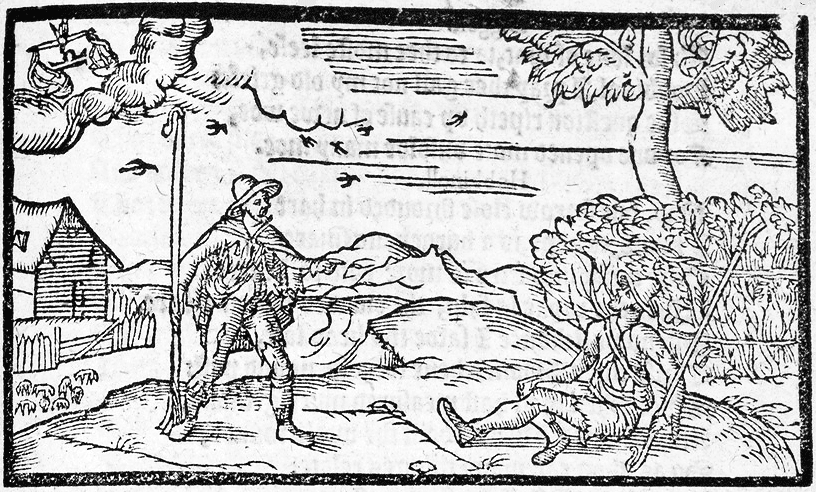Montaigne 1.34

Illustration to Spenser’s Shepheardes Calender
Montaigne presents an odd selection of (mis)fortunes to illustrate the precarious role of fate in the lives of men (and women). A pope mistakenly poisoned; a bridegroom captured in a tourney before his wedding night; a father and son condemned to death, killing each other to cheat the executioner’s sword; all these suggest the darker side. But the man with an abscess in his chest who, given up for dead by his doctors, charges into battle, where a fortuitous injury lances the abscess and saves his life, or the painter who, frustrated with his inability to perfect a painting of a dog, throws his sponge at the artwork, thus creating the desired effect by happenstance that he could not achieve by art – these suggest that only by giving up all hope can one achieve even a hint of salvation. In any case, it brought to mind Hardy’s cheerless poem:
If but some vengeful god would call to me
From up the sky, and laugh: “Thou suffering thing,
Know that thy sorrow is my ecstasy,
That thy love’s loss is my hate’s profiting!”Then would I bear it, clench myself, and die,
Steeled by the sense of ire unmerited;
Half-eased in that a Powerfuller than I
Had willed and meted me the tears I shed.But not so. How arrives it joy lies slain,
And why unblooms the best hope ever sown?
—Crass Casualty obstructs the sun and rain,
And dicing Time for gladness casts a moan….
These purblind Doomsters had as readily strown
Blisses about my pilgrimage as pain.
